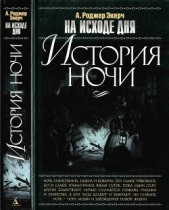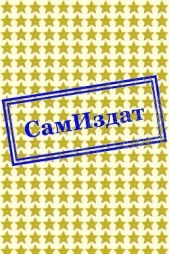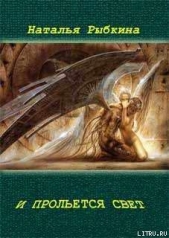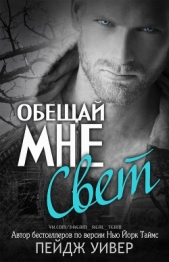На исходе дня. История ночи

На исходе дня. История ночи читать книгу онлайн
Книга известного американского ученого А. Роджера Экерча "Ha исходе дня. История ночи" перевернула представления человека о темном времени суток. Казалось бы, что может случиться с людьми после заката солнца, когда они отдыхают или спят? Но по убеждению автора, именно ночью происходит много интересного, таинственного и забавного. Ночь — это убежище от обыденности, пора влюбленных, время действий добрых и злых сил. Кто-то отправляется развлекаться на балы и маскарады, кто-то спешит в таверну или кабачок, а кое-кто предпочитает посвящать ночные часы усердной молитве. Под покровом тьмы совершаются и различные преступления — от мелких краж до жестоких убийств. При свете свечей проводят собрания члены тайных обществ и сект. Ночью занимаются сексом, болеют, рассказывают страшные истории, делают записи в дневнике, сочиняют книги, мечтают… Автор подробно описывает ночную жизнь людей разных сословий в странах Европы и Америки в период с XVI и до середины XIX века, когда в мир пришло искусственное освещение, прорезавшее ночную тьму. Наряду с документальными текстами исследователь приводит немало захватывающих, пугающих и комических историй, оставшихся в памяти нескольких поколений.
Внимание! Книга может содержать контент только для совершеннолетних. Для несовершеннолетних чтение данного контента СТРОГО ЗАПРЕЩЕНО! Если в книге присутствует наличие пропаганды ЛГБТ и другого, запрещенного контента - просьба написать на почту [email protected] для удаления материала
39. Cereta, Collected Letters of a Renaissance Feminist, ed. Diana Maury Robin (Chicago, 1997), 34.
40. Leo P. McCauley, S. J. and Anthony A Stephenson, trans., The Works of Saint Cyril of Jerusalem (Washington, D. C, 1969), 1, 188; Another Collection of Philosophical Conferences of the French Virtuosi of France…, trans. G. Havers and J. Davies (London, 1665), 316–317; Daniello Bartoli, La Ricreazione del Savio (Parma, 1992), 192–193.
41. Burton E. Stevenson, The Home Book of Proverbs, Maxims and Familiar Phrases (New York, 1948), 1686; Lucien Febvre, Life in Renaissance France, ed. and trans. Marion Rothstein (Cambridge, Mass., 1977), 34–36; ODNB, s. v. "Elizabeth Carter" and "John Scott"; Cecile M. Jagodzinski, Privacy and Print: Reading and Writing in Seventeenth-Century England (Charlottesville, Va., 1999), 13; Raffaella Sard, Europe at Home: Family and Material Culture, 1500–1800, trans. Allan Cameron (New Haven, 2002), 138–139.
42. William Devenant, The Works… (London, 1673); Roger Chartier, "The Practical Impact of Writing," in HPL III, 111–124.
43. J. R. Hale, Machiavelli and Renaissance Italy (London, 1972), 112; Chartier, "Writing," 124–157; Jagodzinski, Privacy and Print, 2–6; Anthony Grafton, "The Humanist as Reader," in Guglielmo Cavallo and Roger Chartier, A History of Reading in the West, trans. Lydia G. Cochrane (Amherst, Mass., 1999), 179–181.
44. May 19,1667, Pepys, Diary, VIII, 223, X, 34–39; Nov. 4, 1624, Beck, Diary, 199–200, passim; Canon, Diary, 41,56; Blaak, "Reading and Writing," 64–76,83—87.
45. Apr. 27, 1706, Cowper, Diary, passim; Jagodzinski, Privacy and Print, 20, 25–43; François Lebrun, "The Two Reformations: Communal Devotion and Personal Piety" and Chartier, "Writing," in HPL III, 96-104,130–134.
46. Yehonatan Eibeshiitz, Yearot Devash (Jerusalem, 2000), 371; Rabbi Aviel, ed. Mishnah Berurah: Laws Concerning Miscellaneous Blessings, the Minchah Service, the Ma'ariv Service and Evening Conduct… (Jerusalem, 1989), 413; Salo Wittmayer Baron, The Jewish Community: Its History and Structure to the American Revolution (Westport, Ct., 1972), II, 169,176, III, 163.
47. Thomas Wright, Autobiography… 1736–1797 (London, 1864), 24; Steven Ozment, Three Behaim Boys Growing Up in Early Modem Germany: A Chronicle of Their Lives (New Haven, 1990), 103; Alexander Teixeira de Mattos, trans., The Memoirs of François René Vicomte de Chateaubriand… (New York, 1902), I, 54.
48. Dec. 31,1666, Pepys, Diary, VII, 426, X, 174–176, passim; Apr. 26,1740, Kay, Diary, 34.
49. Tilley, Proverbs in England, 79; Jan. 2,1624, Beck, Diary, 27–28, passim; Cereta, Letters, ed. Robin, 101, 31–32, passim; Lorraine Reams, "Night Thoughts: The Waking of the Soul: The Nocturnal Contemplations of Love, Death, and the Divine in the Eighteenth-Century and Nineteenth-Century French Epistolary Novel and Roman-Mémoire" (Ph. D. diss., Univ. of North Carolina or Chapel Hill, 2000), 138; William Riley Parker, Milton: A Biography (Oxford, 1968), 1,578, II, 710; Blaak, "Reading and Writing," 79–87; Chartier, "Writing," Madeleine Foisil, "The Literature of Intimacy," and Jean Marie Goulemont, "Literary Practices: Publicizing the Private," in HPL III, 115–117,157-159, 327–332, 380–383.
50. Henry Halford Vaughan, ed., Welsh Proverbs with English Translations (1889; rpt. edn., Detroit, 1969), 94; Michael J. Mikos, ed., Polish Renaissance Literature: An Anthology (Columbus, Ohio, 1995), 168; RB, I, 84.
1. Shakespeare, Antony and Cleopatra, III, 13,184–187.
2. Verdon, Night, 127–131; Pierre Jonin, "L'Espace et le Temps de la Nuit dans les Romans de Chrétiens de Troyes," Mélanges de Langue et de Littérature Médiévales Offerts à Alice Planche 48 (1984), 242–246; Gary Cross, A Social History of Leisure Since 1600 (State College, Pa., 1990), 17–18.
3. Edward Ward, The London Spy (1709; rpt. edn., New York, 1985), 43; Koslofsky, "Court Culture," 745–748; Thomas D'Urfey, The Two Queens of Brentford (London, 1721); Another Collection of Philosophical Conferences of the French Virtuosi…, trans. G. Havers and J. Davies (London, 1665), 419; Schindler, Rebellion, 194–195.
4. Diary of Robert Moody, 1660–1663, Rawlinson Coll. D. 84, Bodl.; Marie-Claude Canova-Green, Benserade Ballets pour Louis XIV (Paris, 1997), 93—160.
5. Ben Sedgley, Observations on Mr. Fielding's Enquiry into the Causes of the Late Increase of Robbers… (London, 1751), 8; "A Short Account, by Way of Journal, of What I Observed Most Remarkable in My Travels…," June 2,1697, Historical Manuscripts Commission, 8th Report, Part 1 (1881), 99—100; Marcelin Defoumeaux, Daily Life in Spain: The Golden Age, trans. Newton Branch (New York, 1971), 70–71; Koslofsky, "Court Culture," 745–748; Thomas Burke, English Night-Life: From Norman Curfew to Present Black-Out (New York, 1971), 11–22.
6. Tobias George Smollett, Humphry Clinker, ed. James L. Thorson (New York, 1983), 1, 87; P. Brydone, A Tour through Sicily and Malta… (London, 1773), II, 87–90; Remarks 1717, 56; Sedgley, Observations, 8; The Memoirs of Charles-Lewis, Baron de Pollnitz… (London, 1739), 1,222; Burke, Night-Life, 23–70, passim.
7. US and WJ, Feb. 28,1730; Vanessa Harding, The Dead and the Living in Paris and London, 1500–1670 (Cambridge, 2002), 197, passim; Craig M. Koslofsky, The Reformation of the Dead: Death and Ritual in Early Modern Germany, 1450–1700 (New York, 2000), 138,133–152, passim; Clare Gittings, Death, Burial and the Individual in Early Modern England (London, 1984), 188–200.
8. Richards, The Tragedy of Messaliina (London, 1640).
9. Walter R. Davis, ed., The Works of Thomas Campion… (New York, 1967), 147; Terry Castle, "The Culture of Travesty: Sexuality and Masquerade in Eighteenth-Century England," in G. S. Rousseau and Roy Porter, eds., Sexual Underworlds of the Englightenment (Manchester, 1987), 158; Terry Castle, Masquerade and Civilization: The Carnivalesque in Eighteenth-Century English Culture and Fiction (Stanford, Calif., 1986).
10. The Rich Cabinet… (London, 1616), fo. 20; Sara Mendelson, "The Civility of Women in Seventeenth-Century England," in Peter Burke et al., eds., Civil Histories: Essays Presented to Sir Keith Thomas (Oxford, 2000), 114; Stephen J. Greenblatt, Renaissance Self-Fashioning: From More to Shakespeare (Chicago, 1980).
11. Castle, Masquerade, 25,1—109, passim; Castle, "Culture of Travesty," 166–167; HMM and GA, Jan. 28,1755.
12. Castle, Masquerade, 73,1—109, passim; "W.Z.," GM 41 (1771), 404; WJ, May 16,1724; Occasional Poems, Very Seasonable and Proper for the Present Times… (London, 1726), 5; Amanda Vickery, The Gentleman's Daughter: Women's Lives in Georgian England (New Haven, 1998), 243.
13. Castle, Masquerade, 73, 1—109, passim; Nancy Lyman Roelker, ed. and trans., The Paris of Henry of Navarre, as Seen by Pierre de l'Estoile: Selections from His Mémoires-Journaux (Cambridge, Mass., 1958), 58; Bulstrode Whitelock, The Third Charge… (London, 1723), 21.
14. Henry Alexander, trans., Four Plays by Holberg (Princeton, N. ]., 1946), 171.
15. Goffe, The Raging Turk (London, 1631).
16. Alexander Hamilton, Gentleman's Progress: The Itinerarium of Dr. Alexander Hamilton, 1744, ed. Carl Bridenbaugh (Chapel Hill, N. C, 1948), 177; PG, Dec. 23,1762.


























